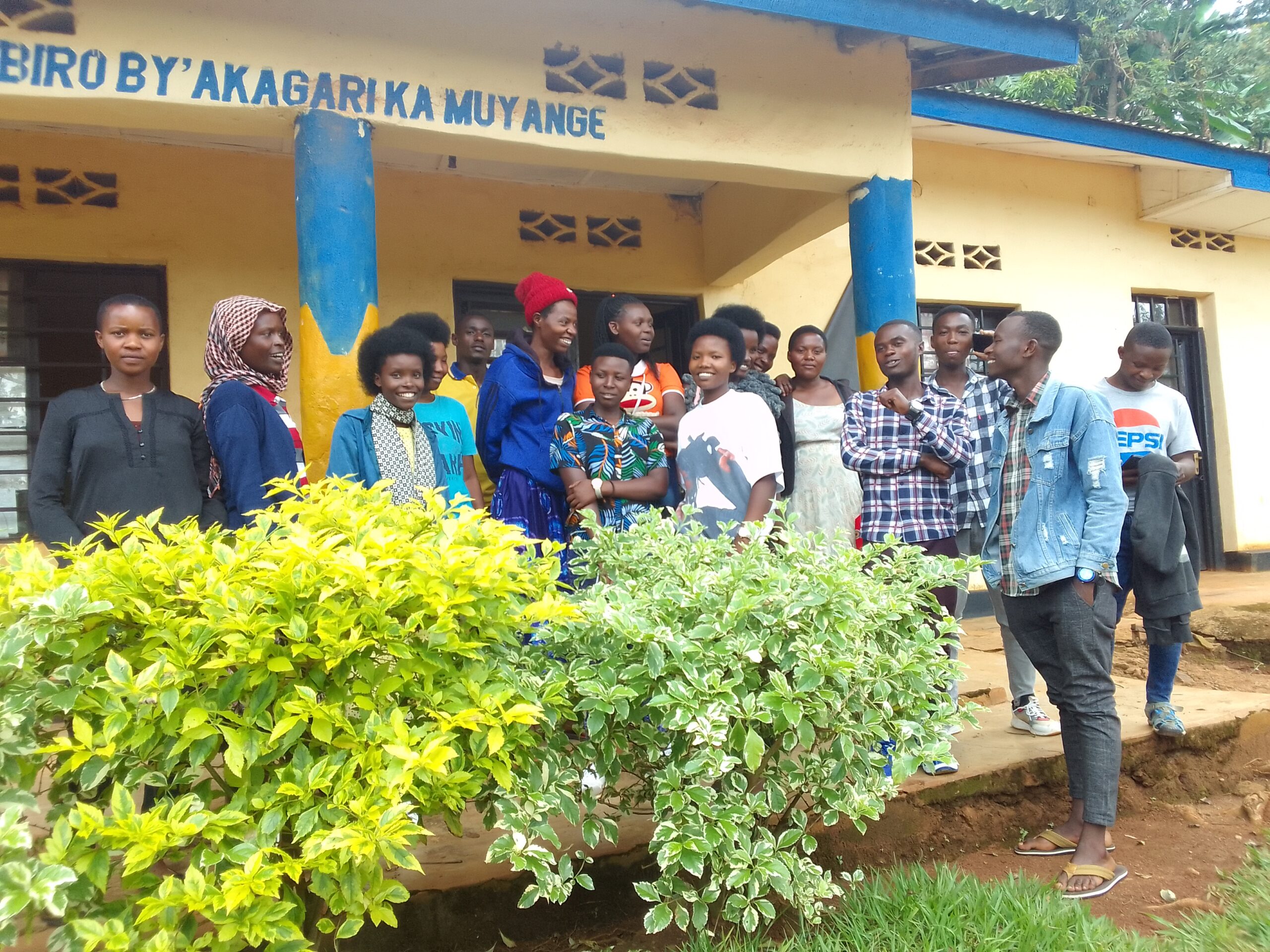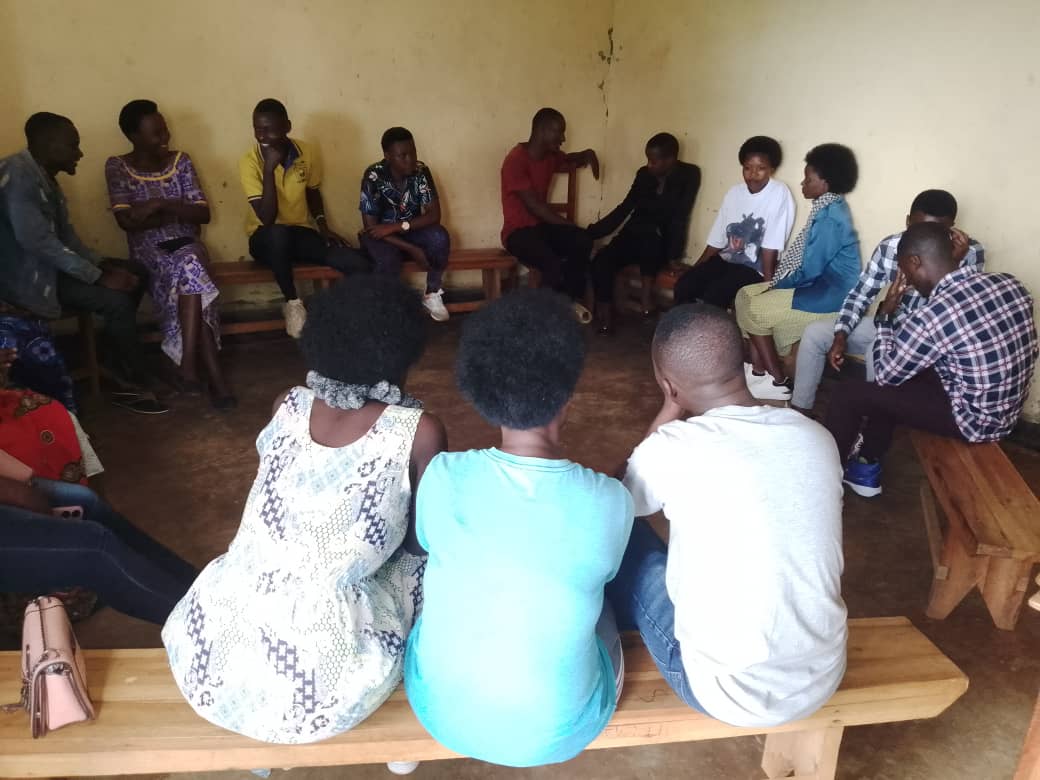As part of supporting youth from the families of survivors of the genocide perpetrated against the Tutsis of Rwanda in 1994, and youth from the families of the genocide perpetrators, an introductory training on civic education and psychosocial support was provided. It was organized on March 23, 2024, and the training was conducted at the Muyange cell office in Nyabitekeri sector of Nyamasheke district.
In the following pages, you have in detail, the elements of the training and process.
PART I: CIVIC EDUCATION
1.1. What is Parenting?
Parenting is a set of teachings that often originates from parents, neighbors, peers and the wider society in general, and then continues in primary and secondary schools. Education is also gotten from the social conditions s/he has been going through in order to become a healthy, developed and valuable person. Many people tend to think that parenting is for very young children (family parenting), but it extends to adults as well.
1.2. Family education
Family education is what is given to a young child by his parents, and it is often a clear indication of what s/he will be in the future, whether he will turn out to be a useful person or a failed child. Giving a child a good education is one of the most important things for parents, the country and the Rwandan community as a whole.
Some of the reasons that cause children to have a poor education include conflicts in families, not planning for the future of children, poor understanding and mindset, hatred based on the ideology of the genocide against the Tutsis in 1994, the fact that parents themselves are no longer a good example for children: alcoholism, adultery, laziness, bad clothing, …
1.3. What is Civic Education?
The word “civic education” was translated into Kinyarwanda from the words “civic education” and “Education civique” in English and French.
Civic education is a series of studies and activities that are assigned to citizens in order to have attitudes, attitudes and practices that help them develop the country.
In short, civic education is taught to the people at different levels because it helps them to know and understand better the different policies of the country that aim to bring them to the sustainable development of their country.
On the side of the leaders, civic education makes the administration listen and better understand their attributions towards the people from the local level to the national level.
1.4. Content of civic education in general
In Rwanda, the goals of civic education are included in the principles of unity, work and patriotism as shown by the emblems of the Republic of Rwanda.
Unity: All Rwandans are united; they are one and work for the same thread
Labor: transparency and fighting ignorance
Patriotism: To protect the country, all Rwandans, united, protect the sovereignty of their country and are ready to defend it.
1.5. Where nationalism is manifested
In the family: As with family education, civic education begins in the family and continues in the school and other social settings. The best way to use citizenship is based on the good example of being brought up by parents, teachers and leaders. These are the ones who are responsible for the culture that is suitable for the country.
For your country: When it comes to looking at a person at the national level, national education is reflected in the mind, attitude and performance of a citizen in various policies: Unity and reconciliation, good governance, welfare, economy and development in general, and justice and foreign affairs.
As we approach the election season, the youth have been trained again on the relationship between civic education and elections.
Civic education in terms of elections is a combination of education and activities aimed at the candidate and the voter, so that they know and have a clear understanding of what the elections should involve and the roles they should play.
1.6. The importance of civic education in elections
1. Civic education explains the rights of the citizens and their obligations in electing their representatives in different levels of administration,
2. It helps them understand the basis of the principle of democracy: “power of the people, by the people, and for the people.”
3. It shows how democracy in Rwanda has been wrongly taught, misunderstood, and its principles are misused in a way that contradicts the principles of democracy and truth.
4. It will be beneficial to the people and will show them that democracy is suitable for Rwanda as a form of governance that helps them to identify the problems they have and to work together to find a timely solution,
5. It will make the electorate aware of the nature of the administrative bodies and their functions, the duties and rights of the electorate,
6. It will make the voters to vote transparently and freely, without relying on any emotions,
7. It provides the basic principles that help to clearly explain why the voter should take an active role in preparing for the elections: He participates in registering on the voter list, participates in the selection and approval of elected officials, participates in public awareness meetings about elections and campaign candidates, participates in the civil process of self-selection, transparently and freely,
8. It will make election candidates prioritize the interests of the public, rather than their own interests. In the campaign, the candidates will rely on the ideas that build the nation if they are influenced by nationalism,
9. It will make the voters aware of their role in transparently and freely electing the leaders who are able and that they should monitor their performance so that the elected people can successfully complete the tasks assigned to them.
PART II. PSYCHOSOCIAL SUPPORT
In the framework of preparing mourning period i.e. commemoration of genocide perpetrated against the Tutsis of Rwanda in 1994, youth from families of genocide survivors and genocide perpetrators were trained on trauma and active listening, in order to prepare them and with them activities relating to 100 days of mourning genocide in Rwanda.
2.1. Theory of trauma
Through group works about theory of trauma, the trainer explained deeply the definition of
trauma, causes, consequences, crisis of trauma, symptoms and prevention. The summary of
topic emphasized on trauma as a result of traumatic events that damage our mental life and this
can have physical, mental and emotional repercussions that could last long after the event has
happened and it’s characterized by change in perception, behavior, attitude and actions.
2.2. Active listening
Active listening was explained trough role play, the trainer explained clearly the Active listening as paying a particular attention to what the individual or family is saying, what is saying a half and what is not saying for improving the quality of their lives, by working through their problems and issues and making positive changes.
2.3. Grief and mourning
The Trainer explained deeply Grief as a natural response to loss where a person suffers the common pattern of emotional states, such as shock, confusion, denial, anger, sadness, rage, depression, isolation… when something or someone you love is dead and the mourning is the process of acclimating to living a life without this special someone or something. It is period of adapting to the changes created by this loss.
Youth from families of genocide survivors and genocide perpetrators discussing in group works

In& For Peace

